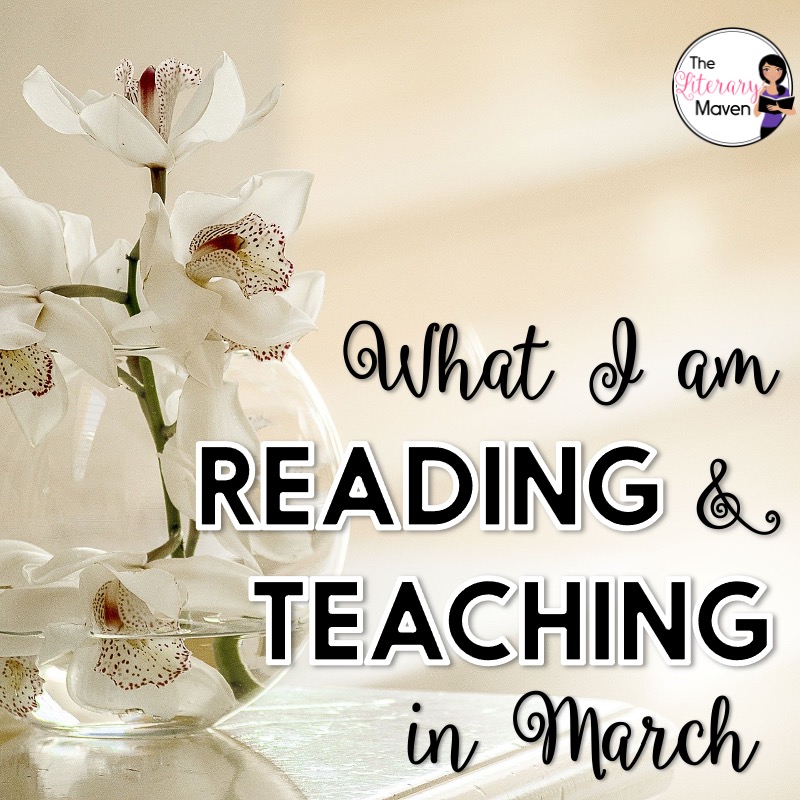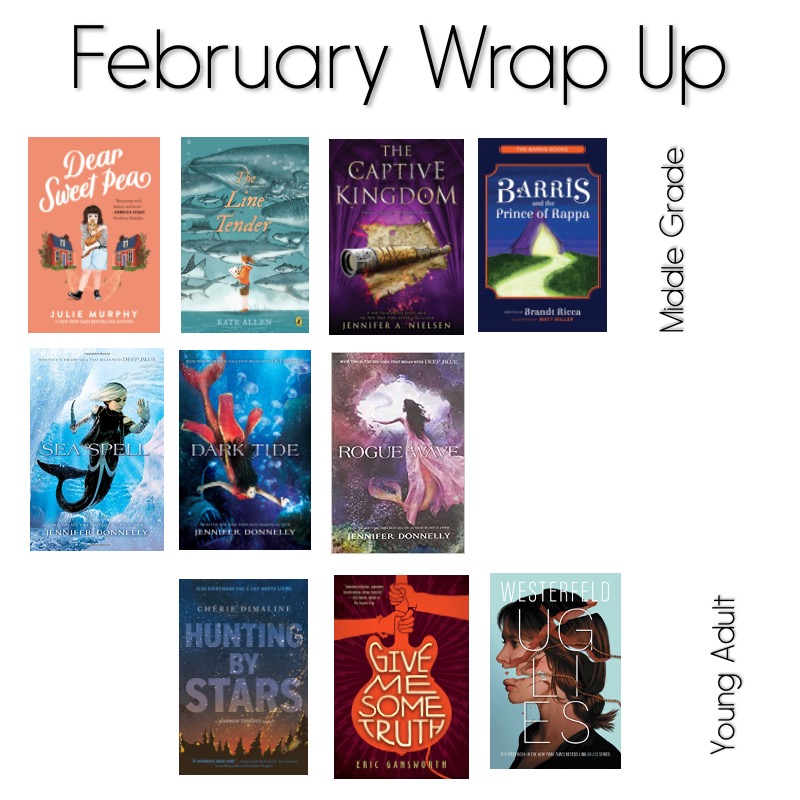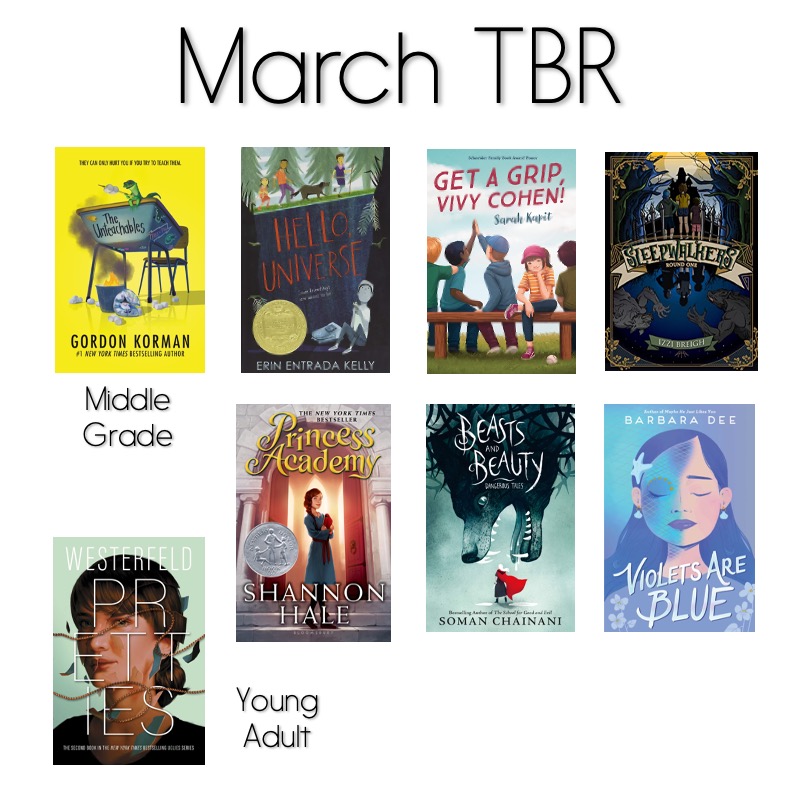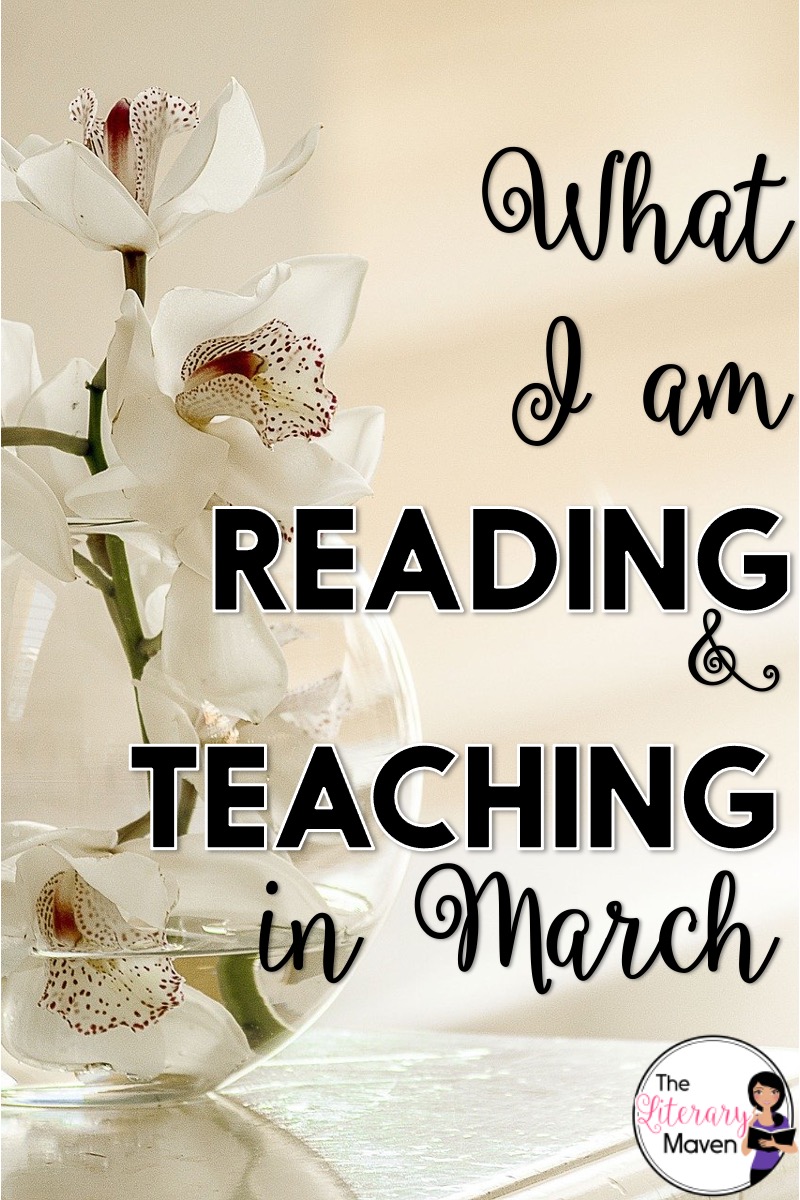For the shortest month of the year, February sure felt long. For me it was likely less because of teaching and more because of interruptions to my sleep thanks to my own children (I don't function well without a full night of sleep). I wasn't super productive during my time to work at work and ended up doing too many things at home. We also had parent conferences, a field trip, and a day off for President's Day thrown in there, so maybe part of the problem was never quite settling into a rhythm. Whatever the root of my February problems, I'm trying to reset my energy and focus for March.
There were some positives in February. My students enjoyed our literature circles just as much as I did and since covid cases are way down, we are allowed to put student desks together again. That also means being allowed to pull small groups, which I've been struggling with not being able to do all year. Especially because I teach a 90 minute block, being able to pull different groups of students or have different groups of students work together throughout a class period is a must.
Reading in March
I read 10 books in February, which is more than my goal of eight a month, but down from the 12 or so a month I've been averaging. I don't think I listened to one full audiobook (often I am reading a physical or Kindle version of a book and have the audio version checked out too). I'm not sure exactly why. Too tired or just not the right books (or maybe that lack of sleep I mentioned earlier)? I even had a book I just could not finish last month, which is a rarity for me. I don't beat myself up over a reading slump but I do like to think about why I'm reading less and what changes I might need to make so that I can read more.
Here's what I'm hoping to read in March:
Pretties by Scott Westerfeld (young adult dystopia)
The Unteachables by Gordon Korman (middle grade fiction)
Hello, Universe by Erin Entrada Kelly (middle grade fiction)
Get A Grip, Vivy Cohen! (middle grade fiction)
Sleepwalkers by Izzi Breigh (middle grade mystery/thriller)
Violets Are Blue by Barbara Dee (middle grade fiction)
Beasts and Beauty: Dangerous Tales by Soman Chainani (middle grade fantasy)
Princess Academy by Shannon Hale (middle grade fantasy)
This first week of March is the final week of our second trimester and we're working on a project and a major choice writing piece, both of which will be finished by the end of the week. They'll be the first big grades for our third and final trimester.
The infographic is a final project for our literature circle novels. Students have a choice of nonfiction topics connected to their novel to research and create an infographic presenting that research. The topics range from truancy and toxic masculinity to the California Gold Rush and anti-Asian discrimination. Before selecting a topic, students did a gallery walk of sample infographics to get ideas about what works and what doesn't visually. Students' "research" includes a set of sources I provide, three articles and a video, but they can do additional research as needed. These are tough topics to find quality material that is accessible to sixth graders, so I want them to at least start with information I've already vetted.
Once students have collected all of their research, they'll create a rough draft, which I'm having them complete on paper this year. Last year were hybrid so students completed it using Google Drawing so we'll see which approach I prefer. We'll spend a day exploring different tech tools that can be used to create infographics and then students will have two days to create their final draft. These turned out really well last year and I'm brainstorming a way for students to share and give positive feedback on each others' this year.
The choice writing piece we are working on is a personal narrative connected to our theme of "facing fear." We did some whole class brainstorming of potential topics and then did a few quick writes where students could write about one topic or several. We practiced writing dialogue, blocking (the "stage directions" for dialogue), and interior monologue to add to their narrative. After students composed a rough draft, we also did a lesson in which students mapped out the plot of their narrative using a plot diagram and tried out different openers for their piece.
This week students are working on revising and then editing. Revising is focused on word choice, making nouns, verbs, and adjectives more descriptive, as well as adding imagery that appeals to the five senses. The editing checklist students will work through includes adding the different types of sentence structures we've worked on so far this year. Personal narratives are my least favorite type of writing to do with sixth graders, so I'm already thinking about ways to tweak this process to make it less painless next year.
After this week, we'll be starting our third and final unit of the year, "dealing with disaster." I've taken a quick look at my lesson plans from last year, but need to really sit down and see if I want to keep the same order of reading selections as last year. Since we did not teach on Wednesdays last year, that puts time back into this year that is allowing me to add in additional readings, writing, and activities. Right now, I'm at least a week "ahead" of last year's plan.
Tentatively, we'll start with an overview of different types of disasters from a Scholastic resource I have a class set of, Storyworks Text Set - Disaster and Survival. Students will then pick a specific disaster to research and create a short presentation on. Because we are environmental school, I push students to look at the environmental impact of the disaster just as much as the impact on humans. Last year, the first readings we did were a pair of poems about Hurricane Katrina that I then paired with a great spoken word/documentary. My students this year should have some background knowledge on Hurricane Katrina from reading the novel Ninth Ward by Jewell Parker Rhodes last year. I have a short play from Scholastic about the hurricane that I would love to be able to do again; I did it two years ago, but not last year with the whole hybrid situation.
Besides reviewing my plans for my final unit of the year, I also need to look at what other grammar and writing skills I would like to cover as the year is winding down. We're working with pronouns right now and I'd like to circle back to subjects and verbs, which is one of the first ideas we started the year with when we worked on simple sentences.
What I'm most excited for this month is our March Madness Poetry Tournament. You can read about how I've run the tournament the past two years in this blog post. Also linked within the post is my original bracket and voting Google Forms. I'm working on finalizing a new bracket that moves away from many of the classic poems I originally selected and include a much more contemporary and diverse group of poets. Using poetry is a great way to review skills we covered earlier in the year.






0 yorum:
Post a Comment